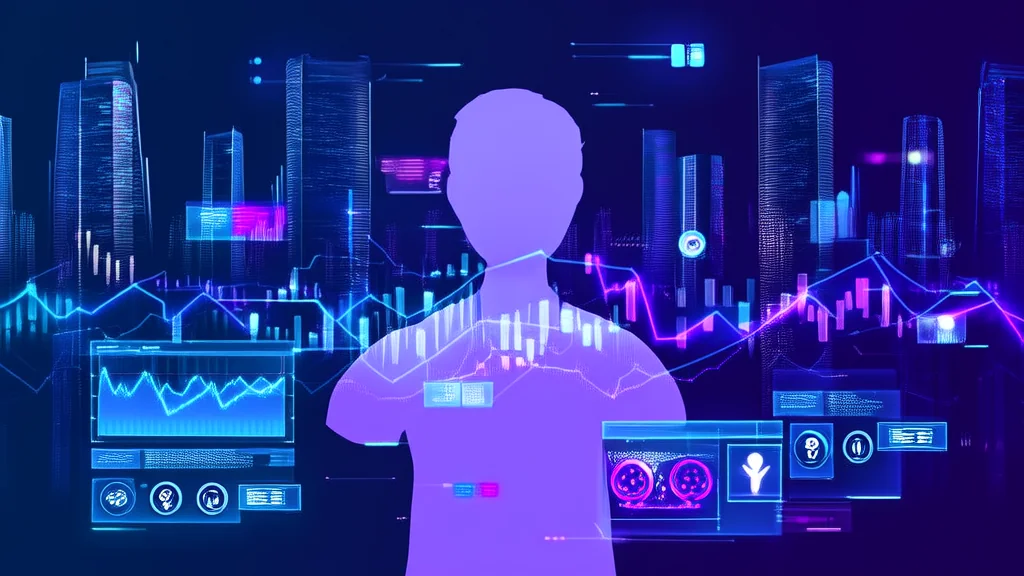The Transformative Power of AI: Real-World Impact and Practical Applications
As we continue to witness the rapid evolution of artificial intelligence (AI), it's clear that this technology is not just a futuristic concept but a tangible force driving change across various sectors. From finance to healthcare, AI is reshaping how we live, work, and interact with the world. In this post, we'll explore some of the most impactful developments in AI, focusing on their practical implications and real-world applications.
AI in Finance: Revolutionizing Risk Management and Customer Experience
One of the most transformative areas for AI is the financial sector, where it is being used to enhance risk management, fraud detection, and customer experience. Major banks and financial institutions are leveraging AI to process vast amounts of data, identify patterns, and make more informed decisions.
Practical Impact: JPMorgan Chase, for example, has implemented an AI-driven system called COiN (Contract Intelligence) to review and extract key information from legal documents. This system has reduced the time required to review loan agreements from 360,000 hours to mere seconds, significantly improving efficiency and reducing human error.
Real-World Example: Another notable example is the use of AI in fraud detection. Mastercard’s AI-powered Decision Intelligence platform analyzes transaction data in real-time, identifying and preventing fraudulent activities. This has led to a 50% reduction in false declines, enhancing both security and customer satisfaction.
Future Implications: As AI continues to evolve, we can expect even more sophisticated tools for risk assessment and personalized financial services. This will not only improve operational efficiency but also create a more seamless and secure experience for consumers.
Big Tech Companies: Driving AI Innovation and Accessibility
Major tech companies like Google, Microsoft, and Amazon are at the forefront of AI innovation, developing new products and services that are making AI more accessible and useful for businesses and consumers alike.
Practical Impact: Google’s AI research division, DeepMind, has made significant strides in natural language processing (NLP) with its latest model, LaMDA. This advanced NLP model can engage in more natural and contextually relevant conversations, which has practical applications in customer service, virtual assistants, and content creation.
Real-World Example: Microsoft’s Azure AI platform offers a suite of AI services, including machine learning, cognitive services, and conversational AI. These tools have been adopted by numerous enterprises, such as the healthcare provider Providence, which uses Azure AI to predict patient no-shows, thereby optimizing resource allocation and improving patient care.
Future Implications: The continued investment and development by big tech companies will likely lead to more accessible and powerful AI tools. This democratization of AI will enable more businesses and individuals to leverage these technologies, driving further innovation and efficiency.
Innovative AI Startups: Pioneering New Business Models and Solutions
While big tech companies are leading the charge, innovative startups are also playing a crucial role in pushing the boundaries of AI. These startups are not only developing cutting-edge solutions but also creating new business models that are transforming industries.
Practical Impact: Anthropic, a startup founded by former OpenAI researchers, is working on developing AI systems that are more aligned with human values and ethics. Their primary focus is on creating AI that can be trusted and used responsibly, which has significant implications for the future of AI governance and regulation.
Real-World Example: Stability AI, another emerging player, has developed a generative AI model called Stable Diffusion, which can generate high-quality images from text descriptions. This technology has been used by creative professionals, marketers, and content creators to produce stunning visuals quickly and cost-effectively. For instance, a small marketing agency in London used Stable Diffusion to create a series of promotional images, reducing their production costs by 70%.
Future Implications: The success of these startups demonstrates the potential for AI to create new business opportunities and solve complex problems. As more startups enter the market, we can expect to see a wider range of AI applications and a more diverse ecosystem of solutions.
Conclusion
The impact of AI on various sectors, from finance to big tech and startups, is undeniable. These developments are not just theoretical; they are already being implemented and delivering tangible benefits. As AI continues to evolve, it will play an increasingly important role in shaping our future, making our lives more efficient, secure, and innovative. Whether you are a business leader, a consumer, or a tech enthusiast, staying informed about these developments is key to navigating the rapidly changing landscape of AI.
